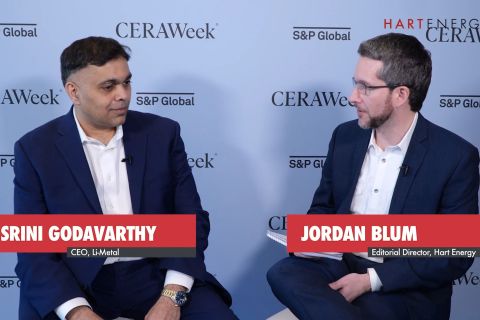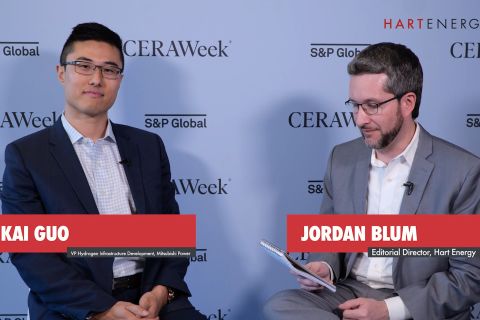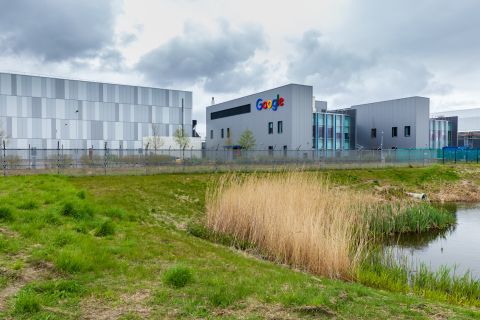It's one thing to drill a well on a remote plain 40 miles from the nearest town or ranch gate. It's quite another to drill in a suburban backyard. Last year Devon Energy Corp. drilled 200 wells in the buzzing Barnett Shale play around Fort Worth, Texas. The play is attracting a great deal of industry interest, new players-and newspaper copy in Fort Worth-because it has become the largest gas play in Texas, topping 1 billion cubic feet of production daily. Last December Devon had 14 rigs running in the area, on 40- and 80-acre spacing. This year it plans to drill another 225 wells there. All told, the Oklahoma City company has more than 1,900 wells producing more than 600 million cubic feet of gas per day from the Barnett. Devon commissioned a study last year that indicated the economic impact of its activity in Wise, Tarrant and Denton counties was $600 million annually. The community-leaders meeting it held to present the data was attended by about 100 people, mostly local officials. That's called impact with a capital I. With so many land and mineral owners, local governments and agencies affected, the company has perfected an ambitious community outreach and education program. It has played the role of industry goodwill ambassador and has an excellent environmental, health and safety record across all its operations in North America. The company's community ambassador program had its beginnings in the Barnett Shale with Mitchell Energy in the early 1990s before Devon acquired that company. Today, what was once a program in one community has expanded to 14 operating areas, from Havre, Montana, to Ruston, Louisiana, to Cote d'Ivoire in West Africa. No longer a one-off program for one town in the Barnett, community outreach has been formalized with a handbook. One Devon employee spends 60% of her time traveling to train the ambassadors in community relations and crisis communications. "It's become a model that other companies are calling us about," says Brian Engel, manager of public affairs at Devon, and formerly in that role at Mitchell. He helped start the program at Mitchell and brought it to Devon. Part of the program is called Wise Eyes, named after Wise County, Texas, where it began. It involves Devon employees cooperating with local law enforcement to create a rolling community watch as they drive along lease roads and go about their business. This program, and Devon's approach to all it does, is a reflection of the company's core values and the corporate culture built by chairman and chief executive Larry Nichols, says John Richels, president. "Look, we all know what is the right thing to do and we will do it. Our employees understand what we'll go to the mat for," Richels says. "Integrity is very important inside the company and out, and it defines every relationship we have. It has to be uncompromised and unquestioned. We have basic beliefs we continually communicate to employees and certain business and personal behaviors we expect from them, and they are judged on that. "While we set specific operational and financial goals, it's very important how we do it. Breaking the rules cannot be part of the victory." Goodwill George Jackson is an operations supervisor in Bridgeport, Texas, in the Fort Worth area. The petroleum engineer's been working the basin for 23 years and been a community ambassador since 1999, when the program started. Some of the employees who have served as ambassadors liked the role so much, they ended up running for local offices such as mayor or school board member. "The community ambassadors try to get out and be the face of Devon, so the mayors and other public officials know who we are and can associate a face with Devon," says Jackson. "We are not just part of some huge corporation. We are friends and neighbors, moms and dads." Jackson attends chamber of commerce meetings throughout the region and once a month, the Northwest Communities Partnership, which brings together many cities, businesses and school districts in the area. Ambassadors regularly visit classrooms and community organizations to educate the public about how and why a natural gas well is drilled. As time passes, people get accustomed to Devon's oil-patch activities and understand more about what the company is doing, why, and how it affects all citizens. They know what to expect when a landman comes calling. "It's not just patting people on the back to keep them happy-it also facilitates getting business done," Jackson says. "But people become more comfortable with you and know what to expect. And they know who to call. For example, a lot of trucks are running up and down the road that can damage the road. But if we break it, we help fix it. "Money does not buy you goodwill. It's the relationships and the trust. You can talk until you're blue in the face, but if you are not doing your business right, it doesn't matter." Devon is doing things differently in the field, to adapt to local issues, such as reducing the number of trucks that haul water for frac jobs. Normally, some 250 loads of water might be hauled in two or three days. Working with local landowners who may have water on their property, Devon often arranges to pipe in that water and reduce the number of trucks rumbling down the roads. It is also drilling more horizontal wells, which will reduce the number of wellbores in a given area. To support the ambassadors, Devon has an extensive media campaign including posters, radio and TV spots, ads in local newspapers that feature local Devon employees, brochures and mailings. A surprising bonus? Two high school students Jackson met as an ambassador told him they have decided to become a petroleum landman and engineer, respectively, thanks to their exposure to Devon's activities. At press time, Jackson was about to take 32 Boy Scouts who are home-schooled, and getting their geology badge, on a tour of a Devon location. "You want little victories like that and you do it year after year," says Engel. "It's part of the work you do to produce natural gas." M
Recommended Reading
Exclusive: Building Battery Value Chain is "Vital" to Energy Transition
2024-04-18 - Srini Godavarthy, the CEO of Li-Metal, breaks down the importance of scaling up battery production in North America and the traditional process of producing lithium anodes, in this Hart Energy Exclusive interview.
High Interest Rates a Headwind for the Energy Transition
2024-04-18 - Persistent high interest rates will make transitioning to a net zero global economy much harder and more costly, according to Wood Mackenzie Head of Economics Peter Martin.
Scotland Ditches 2030 Climate Target to Cut Emissions by 75%
2024-04-18 - Scotland was constrained by cuts to the capital funding it receives from the British government and an overall weakening of climate ambition by British Prime Minister Rishi Sunak, said Mairi McAllan, the net zero secretary for Scotland's devolved government.
Exclusive: Mitsubishi Power Plans Hydrogen for the Long Haul
2024-04-17 - Mitsubishi Power is looking at a "realistic timeline" as the company scales projects centered around the "versatile molecule," Kai Guo, the vice president of hydrogen infrastructure development for Mitsubishi Power, told Hart Energy's Jordan Blum at CERAWeek by S&P Global.
Google Exec: More Collaboration Needed for Clean Power
2024-04-17 - Tech giant Google has partnered with its peers and several renewable energy companies, including startups, to ramp up the presence of renewables on the grid.




